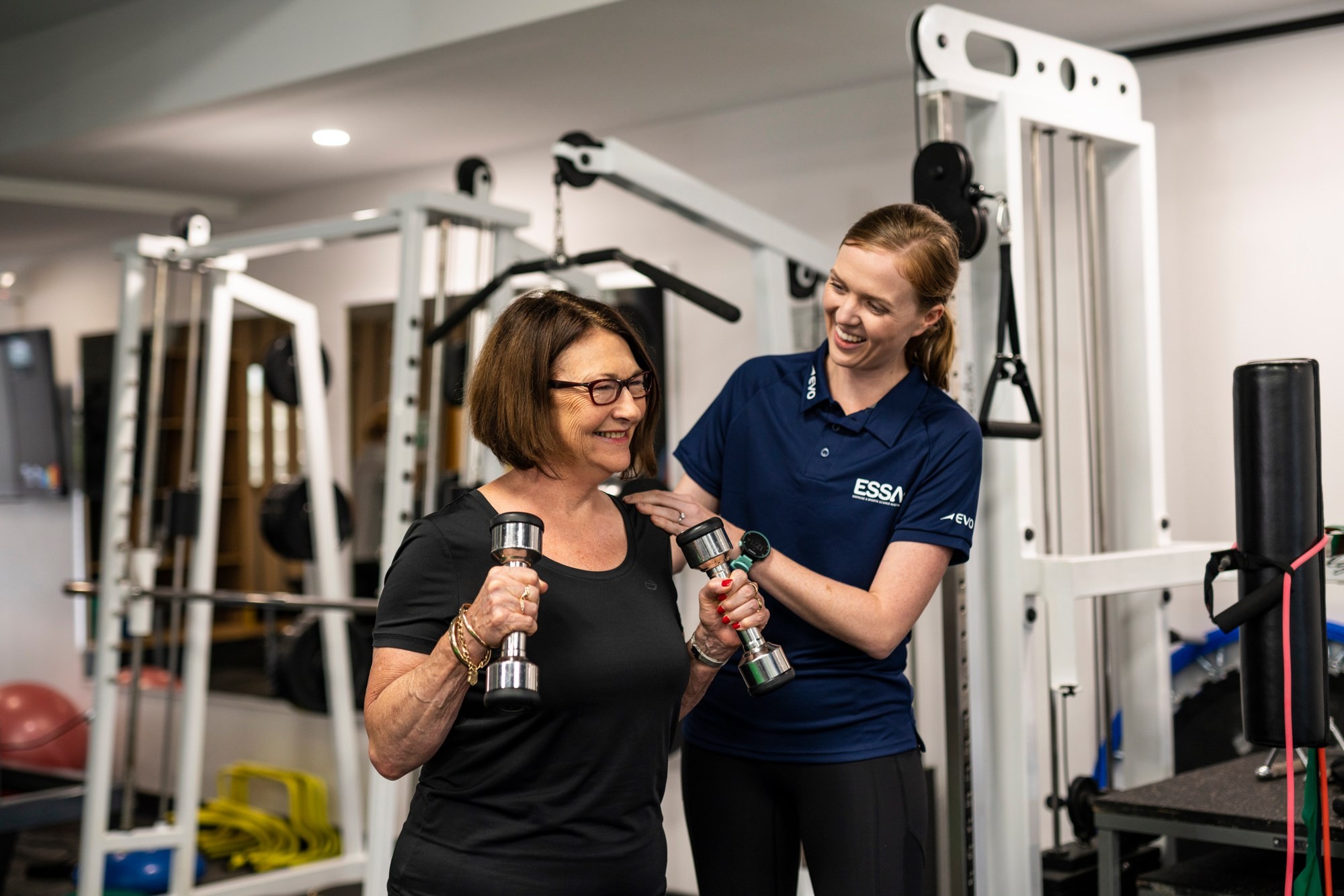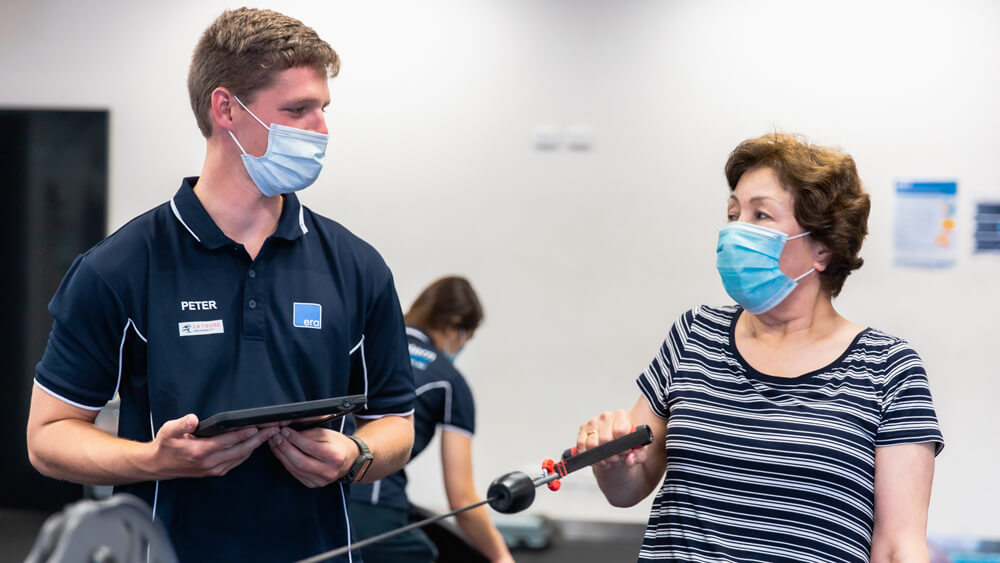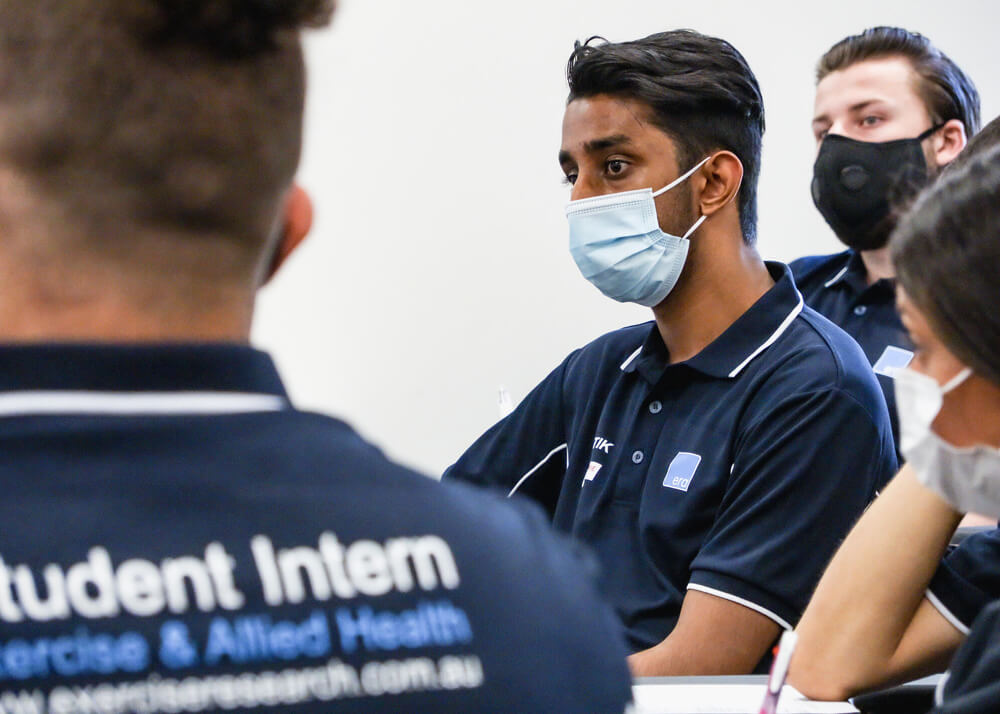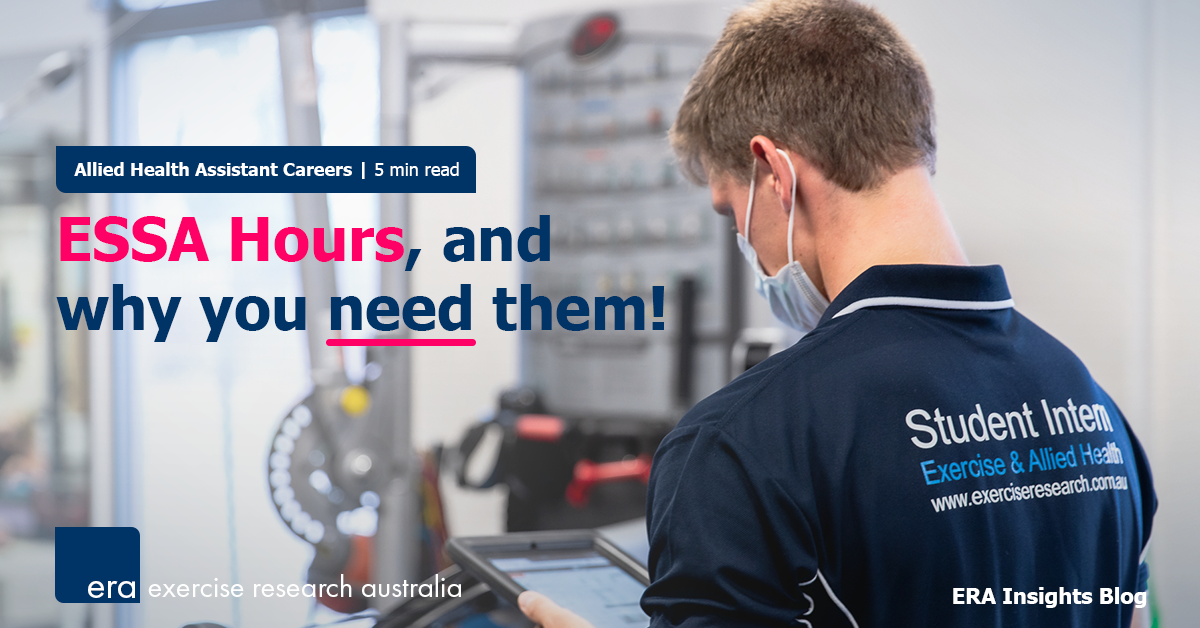ESSA Hours: What They are and Why You Need Them
by Simone Andrews, on 09/03/2021 11:29:56 AM
Placement hours, practice hours, ESSA hours - you have heard these terms around the classroom already, but what exactly are these hours? What do they mean to you? And how can you acquire them?
Learn why ESSA hours are required for students enrolled in an Exercise and Sports Science degree - and why you need them!
What is ESSA?
ESSA stands for Exercise & Sports Science Australia. They are a professional organisation which is committed to establishing and defending the career paths of tertiary trained exercise and sports science practitioners.1

In the exercise and sports science industry, ESSA acts as the membership and accreditation body for four categories of exercise professionals, of which there are four accreditation types:
- Accredited Exercise Scientists (AES)
- Accredited Exercise Physiologists (AEP)
- Accredited Sports Scientists (ASpS)
- Accredited High Performance Managers (AHPM)
What are ESSA hours?
Whether you have just started your first year of study or are heading into your second or third years at Uni, you will know that your degree requires you to undertake practicum hours during your studies.
The hours counted during practical industry experience is what we commonly refer to as ESSA hours.
The number of required hours will differ depending on the qualification. For example:
To gain AES accreditation with ESSA, an individual must:
- Be a graduate from minimum AQF level 7 qualification, that leads to the award of a bachelor’s degree from a higher education provider.
- Meet the Professional Standards for Exercise Science, leading to accreditation as an Accredited Exercise Scientist (AES), including 140 hours of practical experience for the purpose of undertaking an exercise intervention to improve health and fitness, well-being or performance, or focus on prevention of chronic conditions.2

Credit: ESSA
Why are ESSA hours important?
We all know you are required to complete these hours, but why are they important?
Let us say you develop a sore throat and need to see a doctor. You call your local GP and book an appointment with Dr. Keane.
Dr. Keane has just completed their 7 years of study where they have learnt every aspect of modern medicine. They passed every exam with flying colours and walked away from their studies with a first-class honour’s degree.
But there is a catch. You will be Dr. Keane’s first real experience practicing medicine with a patient.
Ask yourself: Would you be comfortable going to see a doctor who has zero hours of experience with a patient prior to meeting with you?
Learning skills in the classroom is one thing but taking those skills into the industry and applying them is an entirely different ball game.

How do I acquire ESSA Hours?
Quite often, it will be your own responsibility to seek practicum hours during your studies. As if you haven’t got enough on your plate already!
Seeking out work experience in the industry while studying can easily take up more time than you have available. A great way to achieve your all-important ESSA hours is to undertake industry placement.
Completing industry placement will allow you to gain experience in the career field you want to pursue.
Not only does it give you an edge over other candidates when applying for jobs, it also prepares you for what to expect in the industry and will likely increase your confidence when it comes to starting work.
Industry placement is a great way to explore different career paths and discover the specialisations that suit your individual needs.
Gain Industry Placement through the ERA’s AHA Program
The HLT43021 Certificate IV in Allied Health Assistance program is a Nationally recognised qualification that provides the necessary skills and knowledge to work as an Allied Health Assistant (AHA) in hospital, clinic and community work settings.
In addition to your coursework, you will undertake a minimum of 120 hours of practical industry placement with leading healthcare organisations that will help you gain clarity on their chosen career path.
Through a number of additionally combined high-performance services and certificates, this exclusive program offers 120 hours of placement across a range of workplaces.

Program Information
The HLT43021 Certificate IV in Allied Health Assistance program is a Nationally recognised qualification that provides the necessary skills and knowledge to work as an Allied Health Assistant (AHA) in hospital, clinic and community work settings. For further information on this qualification, view our Program Overview. Any reference to ‘ERA’s Cert. IV in Allied Health Assistance’, 'ERA's Allied Health Assistance Program', or 'ERA's AHA Program', is to mean HLT43021 Certificate IV in Allied Health Assistance. This training is delivered with Victorian and Commonwealth Government funding. Eligibility criteria apply. This qualification is delivered by Exercise Research Australia Pty Ltd. RTOID: 22490


